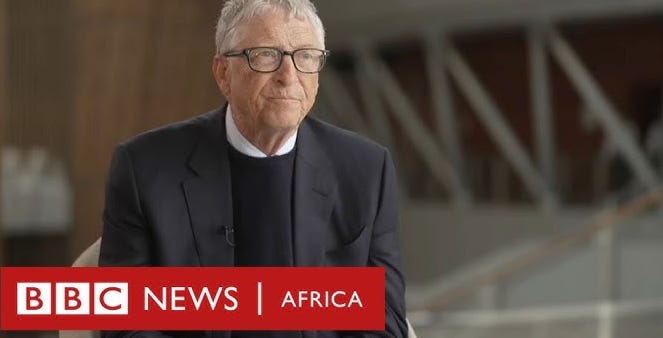Joining the Dots Between Bill Gates and the BBC
It's how the Blob is made
Two recent events in the last week, which might once have been classified as routine commentary, have turned into international incidents with apparently profound consequences. First, and just ahead of the COP30 climate conference in Brazil, Bill Gates seemed to pour water on the climate agenda. Second, a leaked BBC dossier revealed that the broadcaster’s senior staff were aware of but indifferent to news producers deliberately editing footage in misleading ways. Though these events might seem to be unconnected, they may well be much more related than appears at face value. The world is changing, but neither in the way that the climate movement (if there is such a thing) claims nor as the BBC has reported it.
Bill Gates’s comments have been seen as a volte-face, but they may be better understood as a reversion to type. Of the three main “truths” Gates states, the most devastating for alarmists was that climate change “will not lead to humanity’s demise”. I prefer his third “truth”, however: “Health and prosperity are the best defence against climate change.” And that is, as I have been arguing for the duration of my career in climate, exactly the point that ought to be emphasised, rather than squabbles over seemingly scientific claims. The data on human welfare show that climate change is in fact a trivial problem, given sufficient wealth: there is no climate crisis precisely because there is greater health and wealth. If Gates’s overlong prose has a shortcoming, it is that he fails to recognise that the green movement is, from its foundations, ideologically committed to degrowth. I make no defence of Gates here, as you will see, but I point out that he has always had an emphasis that sets him apart from the broader green tendency.



